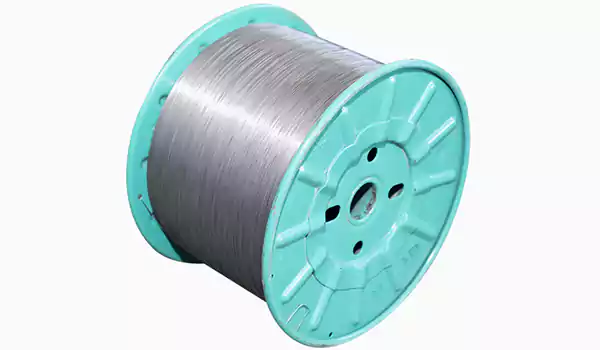
Determining the right steel tube for your application is contingent on insight into its parameters and potential roles. Normal parameters include component makeup, wall gauge, length measure, and clearance limits. Aspects such as rated pressure, thermal tolerance, and corrosion defence are key when choosing pipes for industry, commerce, or residences. Tubular conduits are applied in building works, industrial fabrication, infrastructure projects, water services, gas provision, drainage pipelines, structural applications and specific sectors
- Grasping the particular project needs is essential for choosing the most appropriate pipe
- Refer to relevant codes and standards to obtain precise metal pipe requirements
- Choose materials based on pressure demands, temperature exposure and corrosive environments
Steel Tube Products: Robustness, Longevity, and Adaptability
Tube steel is renowned for exceptional strength and is a top choice for many industrial, structural and commercial uses. Their remarkable lifespan comes from specific construction and forming techniques. Engineered by converting steel billets and rods into seamless or welded tubes, they provide strong anti-corrosion and wear properties for extended durability in challenging environments. Malleable tube steel enables production of diverse profiles and geometries that match unique construction and fabrication demands. Across large-scale infrastructure, building frameworks and intricate mechanical systems, tube steel's combination of robust strength, long endurance and design flexibility secures its essential role in contemporary construction and manufacturingPerforated Metal Mesh for Elevated Security and Safety
Expanded metal mesh is a growing selection for applications needing strong security and elevated safety. The open geometry offers visual transparency while enforcing a physical blockade to unauthorized access and potential dangers. Selectable opening geometries and metal thicknesses provide adaptability to exact specifications
- Resilient expanded mesh stands up to impact, malicious damage and extreme climatic conditions
- Also, quick installation and low maintenance encourage widespread uptake in various sectors
- When securing critical systems and protecting staff in industrial environments, expanded metal acts as a broad protective measure
Metal Mesh Applications in Industrial Settings
Steel mesh is used widely in industrial processes due to its structural strength, endurance and adaptable utility. It forms a firm matrix used in filtration systems, screening equipment, reinforcement layers and protective barriers. Steel mesh is a common reinforcing component in concrete construction to augment tensile strength and deter cracking. Likewise, steel mesh is utilized in bridged sections, tunnel linings and civil works for added support and load-carrying ability. Industrial manufacturing uses steel mesh for filtering and screening, leveraging its fine weave to separate different-sized particles in sieving and purification processes. Steel mesh also serves in protective roles like guardrails, fencing and enclosures to prevent unauthorized entry and safeguard people. Because of superior tensile capacity it withstands forceful impacts and stress, proving appropriate for robust protective installations
Uses of Metal Pipes in Structures
The strong character of metal pipes ensures their value in a broad range of structural uses. Their adaptability helps create dependable frameworks that perform load-bearing functions across industries. From skyscrapers to bridges and underground pipelines, metal pipes provide a backbone and withstand rigorous environmental pressures and exposures. Corrosion resilience and fabrication flexibility underpin their continued importance in contemporary construction
Selecting the Appropriate Tube Steel for a Project
In any structural or fabrication project, selecting suitable tube steel is a major consideration. The strength, endurance and lighter mass of tube steel make it appropriate for diverse applications. Nevertheless, many grades and detailed specifications can make choosing tube steel a tricky process
- For project success, consider the application purpose, load specs and environmental factors
- Aspects like wall thickness, diameter and material grade directly affect tube steel performance
When load demands are high, choose heavy-gauge, high-yield tube steel with thicker walls; for lightweight assemblies, select thinner-walled, low-mass steel
Seek guidance from professional engineers or reputable metal vendors to determine the best tube steel for your requirements
Perks of Employing Expanded Metal in Construction
Expanded metal offers multiple useful and efficient benefits for building and construction. Because it is lightweight, installation is easier and labor costs can be reduced. Moreover, the open structure boosts ventilation and drainage to reduce steel material near me moisture-related issues. Its resilient durability makes it appropriate for demanding resistance-oriented applicationsGrasping Metal Connection Methods
Pipe connections form essential parts of plumbing and piping setups, enabling the transfer of fluids and gases. Which connection to use depends on pipe size, material, rated pressure and the specific application. Popular connection methods include threaded, flanged and welded joints with varying strength and sealing behaviors. Threaded joints screw male to female threads, flanged joints clamp with bolts on flat surfaces, while welded joints permanently fuse sections by heat and pressure. Awareness of each connector's properties is necessary to ensure a functional, sealed piping systemSteel Mesh for DIY: Versatile Material Options
Steel mesh brings durable, versatile and strong characteristics suitable for various DIY creations. The mesh's open grid supports making fences, screens and ornamental pieces. Furthermore, its light weight and workability make it favored by beginners and seasoned DIYers alike
- Explore metal mesh options for your next DIY creation
Metal Pipes: Plumbing and Structural Roles
Metal pipes have become essential parts of modern infrastructure, construction and building systems due to strength, durability and adaptability. Initially focused on water and sanitation, metal pipes have progressed into structural support and reinforcement roles. From base structures to networks for water and gas delivery, metal pipes furnish essential capabilities in modern infrastructure. Toughness enables them to withstand heavy pressures and loads while corrosion resistance secures long-term function. Moreover, metal pipes are readily shaped and adapted into different configurations to suit a wide variety of applications
Exploring Expanded Metal: Design and Function
Expanded metal allows innovative design approaches while maintaining solid functional performance. The open layout enables both decorative architectural implementations and practical industrial safety functions. Load-bearing capacity plus good looks make expanded metal desirable for structural and aesthetic uses
- In addition, the open weave promotes superior air circulation and helps with temperature control where needed
- Expanded metal serves diverse fields such as construction, manufacturing, transportation, automotive and decorative arts